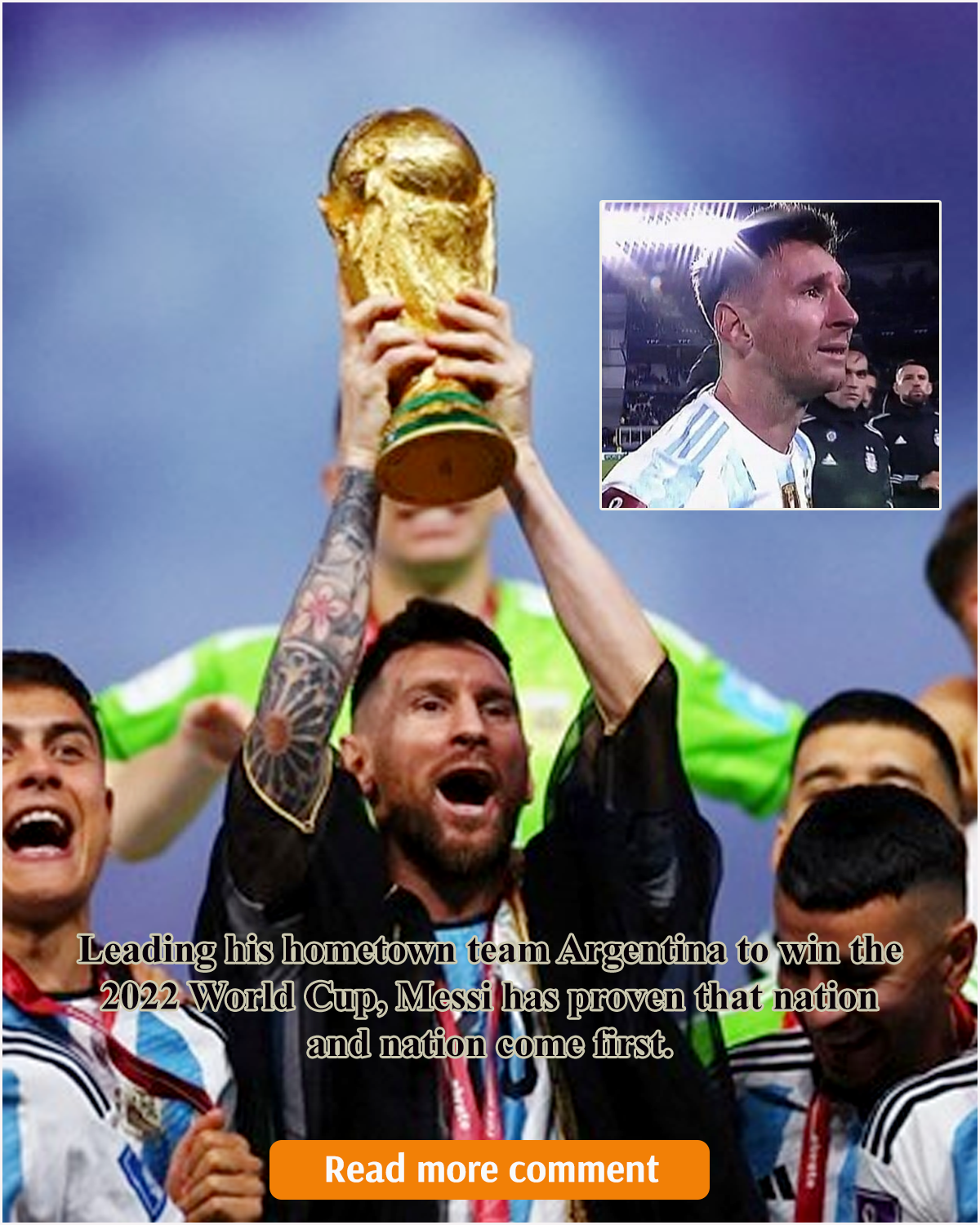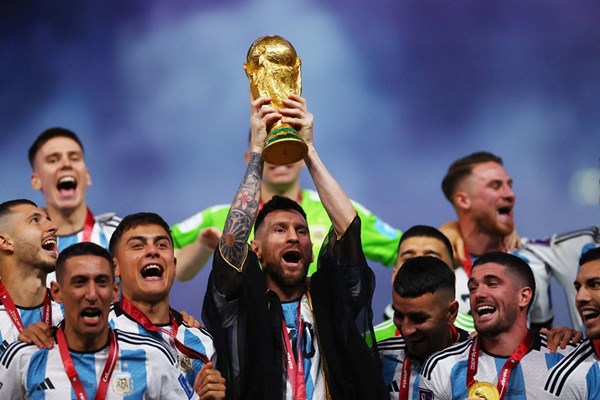

Leading his hometown team Argentina to win the 2022 World Cup, Messi has proven that nation and nation come first.
Go back in time more than 20 years ago, when Messi was a stunted and shy 13-year-old teenager who toddled in the city of Barcelona (Spain) to pursue a football career. Messi is so shy that his teammates at La Masia, Barca’s famous training facility, thought he was dumb. Only when he stepped onto the field and “talked” with his natural feet, everyone was surprised by the natural talent of the young man from the distant South American continent.
During the turbulent early 2000s of the Argentine economy, besides Messi, there was a wave of migration to Spain looking for work. There are people who quickly adapt to new life. There are people who still have an endless nostalgia for their homeland. They try to maintain their ancestors’ traditions through their language and customs. On weekends, expatriate Argentines gather to speak their home language, drink matea tea, a traditional drink of South American countries, and organize Asado, a typical barbecue party of the people. Land of Tango.
During those meetings with compatriots, one of the most interesting topics discussed was the story of the kid from Rosario who plays for Barca’s youth team. On television, local stations still report live the matches of Barca’s youth team and Messi scores every time he goes on the field. His talent became a phenomenon that attracted attention and the Argentine immigrants were delighted to realize – the kid from Rosario was just like them, people who tried to hold on to the blood of their homeland, their native land flowing through their bodies. can.
Even though he was eligible to play, Messi absolutely refused to play for the Spanish team. If he had chosen to side with Xavi, Iniesta or Busquets, perhaps success at the national team level would have come to Messi much earlier. The young man who has been away from home since he was 13 years old still insists on serving his homeland. The 2008 Olympics took place in Beijing (China). Although they had become a mainstay at Barca, La Pulga still ignored all warnings from the Catalan team’s leadership to join the Argentine Olympic Games and win the medal. gold medal in men’s soccer. That choice was very difficult, even going through many tragedies, but the final result was sweet and made Messi an immortal king in the hearts of his home fans.
Many Argentines used to dislike Messi. Perhaps because his brilliant success at Barca is in complete contrast to his poor performance at Albiceleste. Furthermore, Messi shows a measured and somewhat meek image, far different from the usual aggressive and selective nature of the Argentine people, especially symbolized by his idol Diego Maradona, a player who is always loved by the people of the country. tango fetish. However, from “disliking” based on personal feelings is completely normal to criticizing and insulting is a world wide gap. It’s hard to believe, but there are people who call the country’s greatest football talent a “mercenary”, even though he always strives wholeheartedly for the national flag. And perhaps, there is no more painful sentence for Messi than being called a “Catalan on the Argentina team”.
The times he collapsed on the field, the bitter tears after defeat, culminating in the announcement of his retirement from the Argentina team after the defeat in the 2016 Copa America final showed how terrible Messi’s resentment was. If Messi gives up and surrenders to fate, Argentina will no longer have a chance to win either the Copa America or the World Cup and those who humiliate him deserve to be condemned. Luckily, Messi loves his homeland unconditionally. The Argentine superstar has proven that country and people come first, so no matter how difficult the challenge or vilification is, it is meaningless.
Since his stumbles, Messi has returned with a different version. He became thorny and aggressive as if to prove that Argentinian blood always flows in his veins. After the defeat at Copa America 2019, Messi criticized host Brazil for “manipulating everything” and received a penalty. In Argentina’s journey to conquer the 2021 Copa America, one of La Pulga’s highlights besides 4 goals and 5 assists was the scolding of Colombian midfielder Yerry Mina after the semi-finals. And at the 2022 World Cup, Messi became even more aggressive by angering coach Louis van Gaal and “cursing” striker Wout Weghorst of the Dutch team.
That image is a complete contrast to the calmness seen in Messi’s demeanor when he was wearing Barca’s shirt. But, Argentina is completely different from the Catalan team. Fans here, as mentioned, always want to see their idols always be brave in the national team shirt. Witnessing an aggressive Messi has made Albiceleste fans love him more than ever. In fact, it also takes an Argentinian version of Messi like that to lead the national team to the highest peak of glory – the World Cup championship. In Qatar, Messi escaped the shadow of his great predecessor Maradona not only with a sublime performance with 7 goals and 3 assists but also with the thorny personality of an Argentine.
From his victory at the World Cup, Messi undisputedly won the 2023 Golden Ball. With the eighth Golden Ball in his career, Messi also undisputedly affirmed his position as the greatest player in soccer history. L’ Equipe , the organizer of the Golden Ball, cleverly played on words with the headline “eternal” on the front page. The symbol for “eternity”, or “infinity”, is similar to the number 8 written horizontally. With this Golden Ball, Messi becomes the “eternal king” of the soccer world, following Maradona and Pele. But if you ask Messi what is the most eternal thing, I’m sure he will answer love for his homeland.









